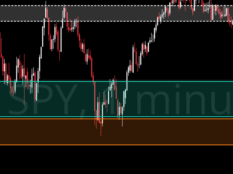In times of economic uncertainty,
the allure of a safe, FDIC-insured savings account can be strong. However, avoiding investing your savings altogether may not be the best decision in the long term. While investing does require taking on some risk, leaving your long-term savings in cash or a savings account can mean leaving potential gains on the table - gains that you may need later in life.

The Risks of Inaction
While investing always involves some degree of risk, the potential reward for taking that risk could be a much higher return on your investment. For example, $100 invested in cash at the start of 1928 would have grown to about $2,000 by the end of 2019. However, that same amount invested in the stock market would have grown to more than $500,000. If you're saving for retirement or other long-term goals, some portion of that growth is likely necessary.
The Impact of Inflation
According to financialadvisorblog, inflation is the rise in the cost of goods and services over time. Historically, it has averaged about 3% per year. Inflation is the rise in the cost of goods and services over time. Historically, it has averaged about 3% per year. Inflation is the rise in the cost of goods and services over time. Historically, it has averaged about 3% per year. This means that, at that rate, in 20 years you can expect to need more than $1,800 to cover every $1,000 you spend today. The problem is that the interest rates on cash accounts may not keep up with inflation, meaning you'd have to save a massive amount just to put away enough for a retirement that could last 30 years or more. Investing in stocks can help you accumulate the savings you'll need to avoid running out of money in your golden years.
Finding the Right Balance
Of course, it's important to remember that investing always involves some degree of risk, and it's important to find the right balance for your personal financial situation. You don't have to invest all your money, and you don't even need to invest all your money in stocks. Bonds offer better returns than a savings account and are generally less risky than stocks. But, your long-term savings will likely generate far better gains if you invest them somewhere other than your bank account.
Things to Consider
Investing can be a smart way to grow your savings and prepare for a financially secure future. It's important to do your research and find the right balance of risk and reward for your personal situation. Consider speaking with a financial advisor or doing some additional research on different types of investments and strategies that can help you make the most of your money over the long term. Don't let fear or uncertainty keep your savings from working for you.



